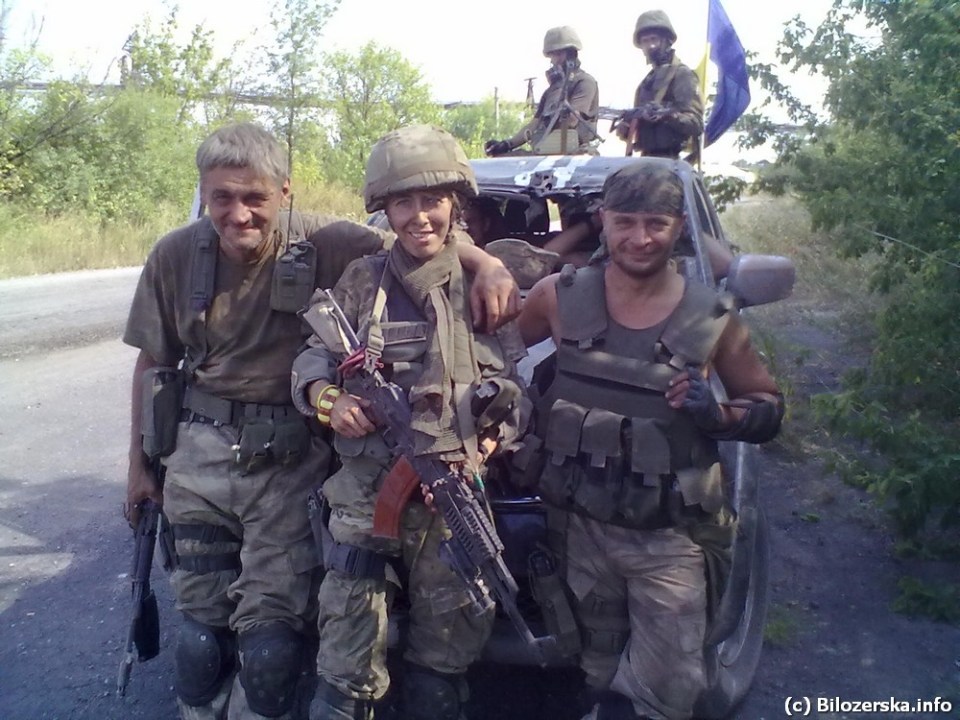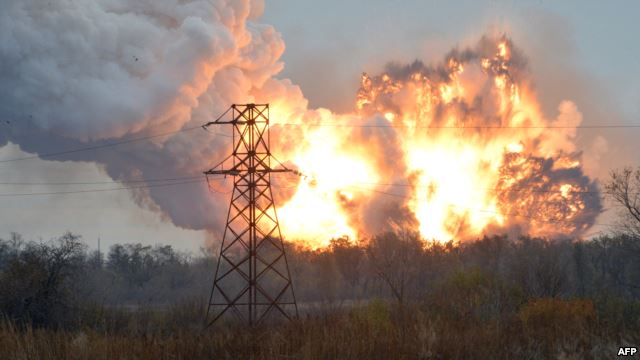The Russian army and separatists continue to accumulate their forces in the parts of Donbas they control. This was stated on November 4 at a briefing in Kyiv by the spokesman of the NSDC Information Center Andriy Lysenko.
According to him, various types of military equipment are being sent to these territories through the areas of the Russian border that Ukraine cannot control. As Lysenko noted, near the village of Bezymenne, three tow trucks were detected which are possibly being used to transport tactical long-range missile complexes.
Leader of Information Resistance Dmytro Tymchuk reported earlier on the fact that Iskander missile complexes were being sent to the Ukrainian border, with a range of up to 500 kilometers, citing his informants on the occupied territories and in Russia. According to him, Russian troops and mercenaries are accumulating on the roads Alchevsk-Stakhanov, Yenaviyeve-Makiyivka, Telmanove-Novoazovsk and in the western districts of Donetsk city. At the same time, several media outlets published unverified information that Russia is preparing several advances from the separatist-controlled territories of Donbas, and that ambush groups were created for this purpose, summing up to a hundred thousand fighters. Ukrainian experts and the NSDC do not confirm these numbers. However, photos of so-called ‘military summons’ appeared in mass and social media, which are being sent by the separatists to the citizens of the districts under their control between the ages of 18 and 55 and which, if we are to believe the photo, cite military service legislation of the Russian Federation.
Separatist leaders: one for the peace plan and trade with Ukraine, the others – for advance
The leaders of the separatists, the so-called ‘First Deputy Head of Government’ of ‘DNR’ group Andrey Purgin and the ‘Head of the High Council’ of ‘LNR’ Alexey Kariakin published an ultimatum, wherein, on the one hand, they accuse the Ukrainian government of violating the ceasefire and the Minsk accords, and on the other, talk about readiness to “continue dialogue, however the dialogue should be equal.”
“We are asking Kyiv to adhere to the peace plan… meanwhile we guarantee that if Kyiv shows reason, the chosen leaders will be ready to continue dialogue,” says the statement.
The separatists claim they are ready to renew the entire complex of connections with Ukrainian regions, to the extent of making agreements with the Cabinet of Minister, businesses and organizations; they assure that they are not against selling coal and instead receiving electricity and other goods, and in the case of such cooperation, they are ready to remain within the hryvnia zone.
Earlier, the leader of the separatist ‘DNR’ Alexandr Zakharchenko
claimed he was planning on broadening the territory under the control of the mercenaries and the Russian army, and assumed that it would soon become “like the two Germany’s.”
Russia using the Iskanders may return the situation when Ukrainian soldiers were unable to respond to attacks – expert
Such showing off while at the same time proposing cooperation is a form of Russian blackmail of the Ukrainian government and European countries in general, stated co-director of international security programs of Razumkov Center Olexiy Melnyk to Radio Liberty.
“This is a new wave of blackmail. The Russian government is using the mercenaries under its control to influence the decisions made in Kyiv directly and indirectly, threatening with further escalation of the conflict in Donbas. As to real escalation of the conflict, it is less realistic, however, we should not exclude the possibility. It is difficult to count the troops accumulated at the borders and on the separatist-controlled part of Donbas. Starting with November is not a good time for advancing, because it is the time of demobilization in Russia. However, Russia has more of an advantage in terms of numbers,” the expert concludes. “Iskander missile complexes which Russia located near the Ukrainian border have a range of 500 kilometers, and the Ukrainian army may end up in the same situation as it was this summer, when the Russian artillery fired from across the border, but they were unable to respond,” notes Olexiy Melnyk.
There is nothing strange in the fact that on one side the leaders of the separatists are talking about readiness to cooperate with Kyiv and on the other, mercenaries and Russian troops accumulate at the directions of possible attacks on the Ukrainian army, explains politics expert, experts in Ukraine-Russia relations Olesya Yakhno.
“They are two parallel processes, and this is the way they will develop further. ‘DNR’ and ‘LNR’ organizations are not wholesome structures, their individual parts are competing against each other. The leaders of these formations want independence, but they understand that they are not economically independent, that even if Russia feeds them militarily and materially, their infrastructure is tied to Ukraine. The so-called ‘DNR’ and ‘LNR’ are trying to prove to the locals that they can establish reasonably comfortable living conditions on this territory. However, it is unlikely they will manage, because we have not seen any increase in welfare on any of territories Russia occupied,” predicts the politics expert.
At the same time, Olesya Yakhno thinks that the accumulation of the Russian army and weaponry is a form of psychological pressure which does not necessarily mean further invasion.
“This is psychological and informational pressure on Ukraine and the West. And on the other hand, moral and psychological support of the separatists, a demonstration that they were not left for dead. Whether the invasion will continue is a decision that, it seems, has not been approved yet,” presumes Olesya Yakhno. According to her, the situation is now a Zugzwang, as the consequences for the Russian government and Putin personally will be negative in case he continues to attempt to capture Ukrainian soil and in case he decides against it.





